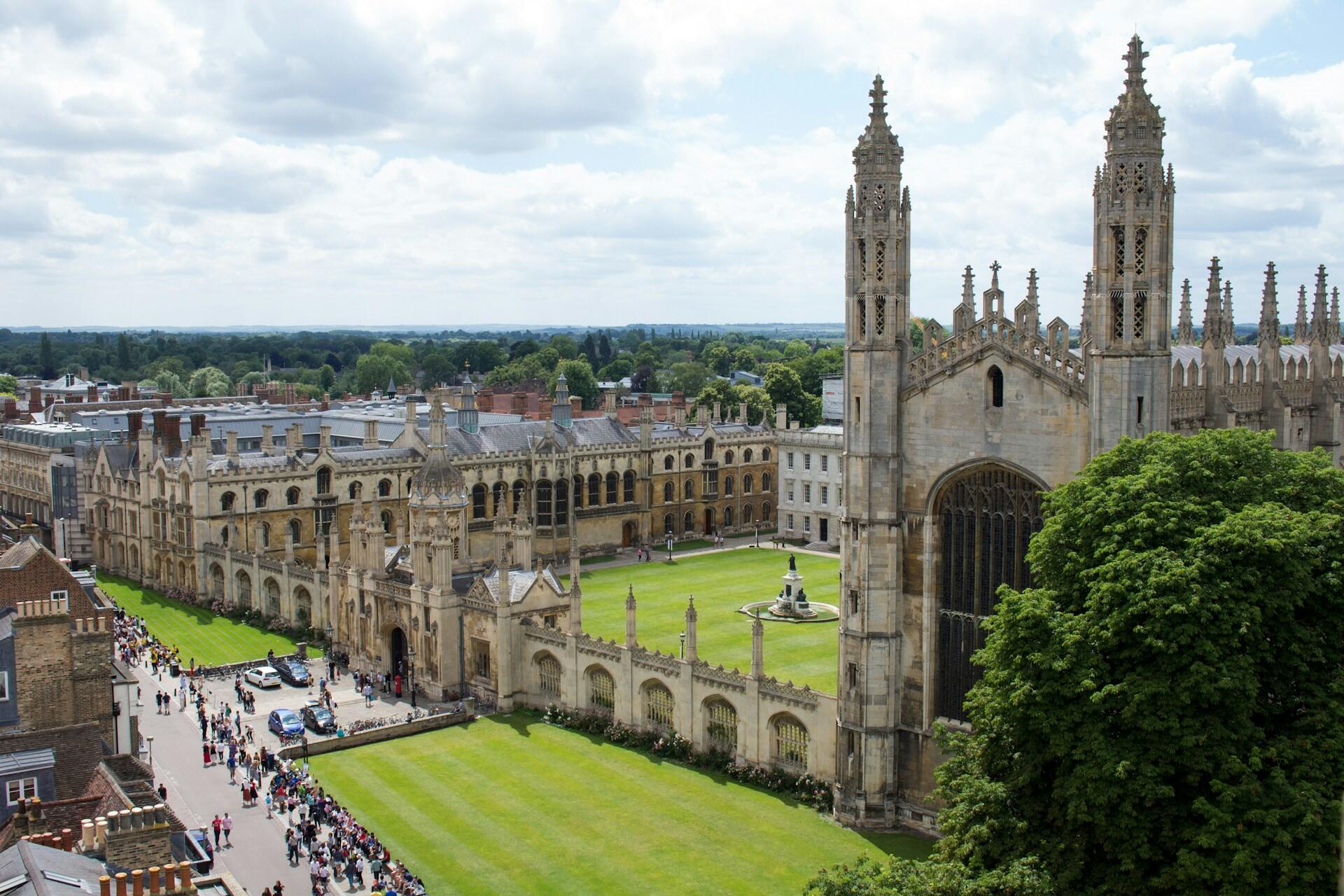Education is not the learning of facts, but the training of the mind to think.
Albert Einstein
For families in New Zealand, choosing a secondary curriculum is a challenging endeavour. The International Baccalaureate (IB) and the Cambridge curriculum are globally recognised qualifications that prepare students for university admissions, but in different ways. The IB vs. Cambridge debate often comes down to which one is more challenging. That'll depend on the student, their academic strengths, and their future goals. Let's explore how the programmes are structured and how the students are assessed.
| Feature | International Baccalaureate (IB) | Cambridge (IGCSE & A Levels) |
|---|---|---|
| Subjects | 6 (3 HL + 3 SL) + core components | 3–4 A Level subjects (after IGCSE) |
| Assessment | Mix of exams & coursework | Primarily exam-based |
| Grading | 1–7 scale, max 45 points | A*–E (A Level), A*–G/9–1 (IGCSE) |
| Core Components | TOK, EE, CAS | None required |
| Learning Style | Broad and balanced | Specialised and in-depth |
| University Recognition | Globally consistent, strong abroad | Strong in UK, NZ, and globally |

What Is the International Baccalaureate (IB)?
The International Baccalaureate (IB) is a globally recognised programme of secondary education aimed at developing well-rounded students with strong academic knowledge, research skills, and intercultural awareness. It was founded in Geneva in 1968 and has grown into one of the most respected international curricula.

worldwide.
For high school or secondary school students, the IB Diploma Programme is a two-year academic course of study. It's typically taken in the final years of secondary school (Year 12 and Year 13 in New Zealand). Unlike many other national systems, the IB is broad and balanced by design, with students required to take six subject groups across their course, ranging from sciences and mathematics to languages, arts, and humanities.
The programme also includes three core requirements:
The International Baccalaureate Diploma Programme is a two-year qualification for senior secondary students that combines six subjects with core components like TOK, EE, and CAS. It’s designed to balance academic depth with broader skills such as research, critical thinking, and global awareness, making it one of the most respected pathways for university admissions worldwide.
How the IB Diploma Works: Subjects, Core, and Assessment
The IB Diploma is structured to provide students with a broad range of subjects while also allowing them to explore each one in depth. Students have to choose six subjects from six main academic groups:
Subjects can be studied at either Higher Level (HL) or Standard Level (SL). Typically, students choose 3 HL subjects and 3 SL subjects. HL courses typically cover more advanced content and include additional teaching hours.
IB assessments include external examinations with internal coursework. Exams are held at the end of the two-year programme and are graded on a scale of 1 to 7. Coursework includes essays, projects, practical work, and oral presentations. These are all moderated to ensure consistency across schools worldwide.
The core components (the Extended Essay, Theory of Knowledge, and CAS) contribute up to three additional points toward the final diploma score. The maximum score in the IB is 45, with 24 points typically needed to earn the diploma.
in the International Baccalaureate.
Who the IB Suits: Learning Style, Skills, and University Pathways
The aim of the IB Diploma isn't just to teach students subject knowledge; it's to create a particular kind of learner. The International Baccalaureate requires students to study across several subject areas and complete independent research. This means that the IB is best for students who are:
A key advantage of the IB is that it's widely recognised by universities worldwide. Admissions are aware of how rigorous the programme is and how it prepares students for higher education. For students considering studying abroad, the IB offers several advantages, as it demonstrates that students are ready for global university standards.
However, the IB isn't for every student. Some prefer to specialise in a small number of subjects at an advanced level. Others will find it a perfect match for their learning style, offering both academic qualifications and the broader skills that universities and employers are seeking.
now offer IB programmes globally across more than 160 countries.
Cambridge Explained: IGCSE and A Levels (CIE) Overview
While the International Baccalaureate focuses on a broad range of subjects, the Cambridge curriculum takes a different approach, with depth and specialising in specific subjects. This pathway is overseen by Cambridge International Education (CIE) and offered in secondary schools across New Zealand and the world.
The Cambridge system typically begins with the IGCSE (International General Certificate of Secondary Education), which is taken in Years 10 and 11. IGCSE subjects are academically focused and are typically assessed through exams. Students usually choose between five and seven subjects.

After completing IGCSEs, students progress to AS and A Levels, which are typically studied in Years 12 and 13. A Levels are internationally recognised qualifications where students usually choose three or four subjects. The Cambridge route is particularly suited for students who know their intended university course and want to focus on specific subject areas, such as sciences, mathematics, or humanities.
Most Cambridge qualifications are exam-based, with less emphasis on coursework compared to the IB. Grades are lettered from A* to E. A strong performance is particularly beneficial for college and university applications worldwide.

Depth vs Breadth: IB vs Cambridge (What’s Actually Harder?)
The heart of the IB vs Cambridge discussion depends on whether you prefer breadth or depth in your studies. The International Baccalaureate (IB) requires students to study a wide range of subjects across languages, sciences, mathematics, and the arts, while also completing core components such as the Extended Essay and Theory of Knowledge. Students can't ignore their weaker areas, and the breadth of subjects in the academic curriculum means that it's a lot of work.

The Cambridge pathway focuses more on depth. With students focusing on three or four subjects at A-level, they must delve much deeper into their chosen fields. For students with clear university goals or an idea of what they want to do, this allows them to specialise. This can be particularly useful for fields such as medicine, engineering, or law, as well as any courses with subject prerequisites. This can make A-Level study intense, and with exams being heavily content-based, students need to remember a lot and work on their exam skills.
So, which is harder: Cambridge vs IB? And what about Cambridge and NCEA? The answer will depend on the student. The IB requires effective time management and the ability to juggle multiple disciplines. Cambridge, on the other hand, requires focused mastery. Both are academically rigorous and challenging, though.
International Baccalaureate (IB)
- Broad curriculum across six subject groups.
- Combines Higher Level (HL) and Standard Level (SL) courses.
- Includes three core components: Extended Essay, Theory of Knowledge, and CAS.
- Final score out of 45 points (24 needed to pass).
- Emphasises critical thinking, research, and balanced learning.
- Globally recognised for university admissions.
Cambridge (IGCSE & A Levels)
- Students specialise in fewer subjects (usually 3–4 at A Level).
- Depth of study suited to specific university or career pathways.
- Assessment is primarily exam-based, with a lesser emphasis on coursework.
- Graded A*–E at A Level (A* is the highest, E is a pass).
- Well-established and widely accepted for university applications worldwide.
- Strong fit for students with clear subject or degree preferences.
IB: Six subjects and core (TOK, EE, CAS), balanced workload, continuous assessment, maximum score of 45.
Cambridge: 3–4 subjects at A Level, exam-heavy assessment, strong subject depth, graded A*–E.
Summary: IB = breadth & balance; Cambridge = depth & specialisation.
Assessment and Grading: Cambridge vs IB
The key areas of difference between the two are how they're graded. The International Baccalaureate is a combination of coursework and final exams, whereas A Levels are primarily based on exams. How they're graded also differs.
International Baccalaureate (IB)
- Six subjects graded on a scale of 1 to 7.
- Three at Higher Level (HL), three at Standard Level (SL).
- Core components (Extended Essay, Theory of Knowledge, CAS) add up to 3 bonus points.
- Maximum diploma score: 45 points.
- 24 points (plus subject distribution requirements) needed to pass.
- Mix of coursework and exams ensures continuous assessment.
Cambridge (IGCSE & A Levels)
- IGCSE: graded A* to G or on the newer 9–1 scale (with 9 highest).
- AS Level: graded A to E (no A* grade).
- A Level: graded A* to E (E is the minimum passing grade).
- Heavily exam-based, with limited coursework.
- Results largely determined by final exams at the end of the course.
Workload, Time Management, and Wellbeing
To decide between the two, think about how you prefer to manage your time and workload. Are you the kind of student who prefers deep dives into subjects and can focus intently, or are you great at juggling multiple subjects at once? Ultimately, the choice is about this, as well as considering your own wellbeing.

IB Diploma
- Workload spread across six subjects + three core components.
- Regular assignments, labs, essays, and CAS activities.
- Rewards steady effort and strong time management.
- Students face a continuous workload rather than a single exam peak.
Cambridge A Levels
- Focus on fewer subjects (3–4), but with much greater depth.
- Heavy emphasis on memorisation, content mastery, and exam technique.
- Intense revision periods before final exams.
- Pressure tends to peak toward the end of the academic year.
Wellbeing Considerations
- IB can feel relentless due to constant tasks across multiple areas.
- Cambridge can be stressful because of high-stakes final exams.
- Choosing the right path depends on the child’s learning style and coping strategies.
Recognition in NZ and International Admissions
The choice of the IB or Cambridge pathway might depend on where you intend to go with each pathway. How they're seen by universities is key. After all, both are typically pathways for students who wish to pursue higher education.
International Baccalaureate (IB)
- Recognised by all eight NZ universities for direct entry into degree programmes.
- Highly regarded by global universities for its academic rigour and international outlook.
- The diploma score (out of 45) is easily comparable across countries, providing admissions officers with a standard benchmark.
- Well-suited for students applying abroad, particularly in the UK, Europe, North America, and Asia.
- Universities often highlight the IB’s strength in preparing students for research, essay writing, and independent study.
Cambridge (IGCSE & A Levels)
- Widely accepted by New Zealand universities, A Level grades translate directly into entry requirements.
- Globally recognised as one of the most established secondary qualifications.
- Strong fit for specific degree pathways, as many universities set subject prerequisites (e.g., Chemistry and Biology for Medicine).
- In the UK, A Levels remain the standard qualification for entry into university programmes.
- In the US and elsewhere, A Levels are highly respected and often compared to Advanced Placement.
Both the IB and Cambridge provide strong university pathways, but their recognition differs slightly in practice. The IB is valued for its breadth and global consistency. In contrast, Cambridge is valued for its depth and alignment with traditional university subject requirements.
IB vs Cambridge: Which Is Harder?
There isn't a simple answer to which is harder, but as you've seen, it depends on what you want to do and whether you have a range of interests and an ability to multitask or have a specific goal in mind that requires deep specialisation.
Summarise with AI:











